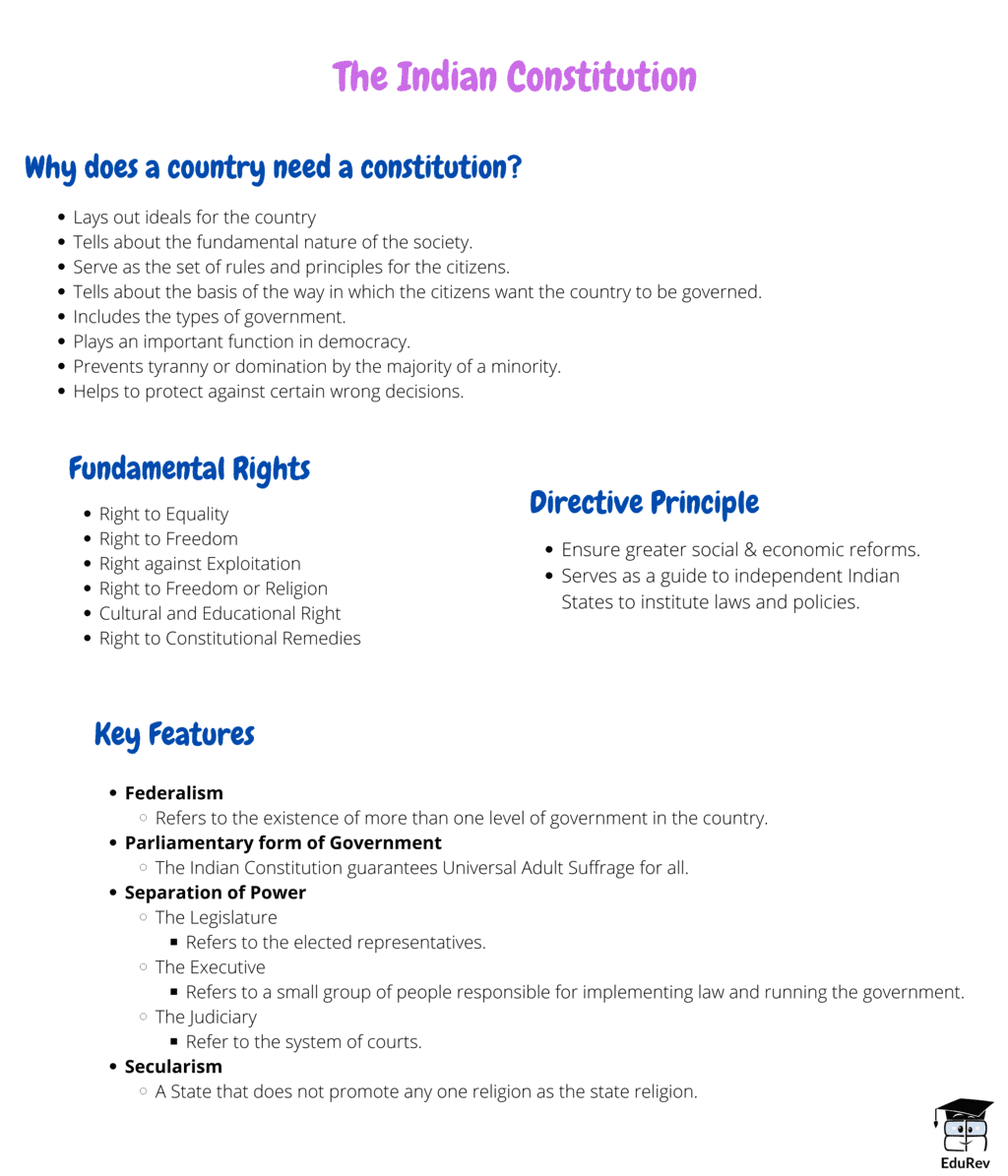Class 8 Exam > Class 8 Notes > Social Studies (SST) Class 8 > Mind Map: The Indian Constitution
Mind Map: The Indian Constitution | Social Studies (SST) Class 8 PDF Download

The document Mind Map: The Indian Constitution | Social Studies (SST) Class 8 is a part of the Class 8 Course Social Studies (SST) Class 8.
All you need of Class 8 at this link: Class 8
|
69 videos|431 docs|46 tests
|
FAQs on Mind Map: The Indian Constitution - Social Studies (SST) Class 8
| 1. What is the significance of the Indian Constitution? |  |
Ans. The Indian Constitution is of great significance as it provides the framework for governance in India. It lays down the fundamental rights and duties of citizens, establishes the structure and powers of the government, and ensures the protection of individual liberties. It also upholds the principles of democracy, secularism, and social justice, making it a vital document for the functioning of the country.
| 2. How was the Indian Constitution formed? |  |
Ans. The Indian Constitution was formed by a Constituent Assembly, which was comprised of elected representatives from various regions and communities of India. The assembly worked for almost three years to draft the constitution, with Dr. B.R. Ambedkar serving as the chairman of the drafting committee. The final draft was adopted on 26th November 1949 and came into effect on 26th January 1950, marking the beginning of India as a republic.
| 3. What are the fundamental rights guaranteed by the Indian Constitution? |  |
Ans. The Indian Constitution guarantees several fundamental rights to its citizens, including the right to equality, right to freedom of speech and expression, right to practice any religion, right to protection against discrimination, right to education, and right to constitutional remedies. These rights are essential for the protection of individual freedoms and are enforceable by the courts.
| 4. How can the Indian Constitution be amended? |  |
Ans. The Indian Constitution can be amended through a well-defined process. An amendment can be proposed by either house of the Parliament and must be passed by a special majority, which requires a two-thirds majority of the members present and voting. After the amendment is passed by both houses, it needs to be ratified by at least half of the state legislatures. Some amendments also require the consent of the President of India.
| 5. What is the role of the Supreme Court in upholding the Indian Constitution? |  |
Ans. The Supreme Court of India plays a crucial role in upholding the Indian Constitution. It acts as the guardian of the Constitution and has the power of judicial review, which allows it to strike down any law or government action that is found to be unconstitutional. The Supreme Court ensures that the principles and provisions of the Constitution are upheld, and it acts as the final interpreter of the Constitution, settling disputes and providing clarity on constitutional matters.
Related Searches

















